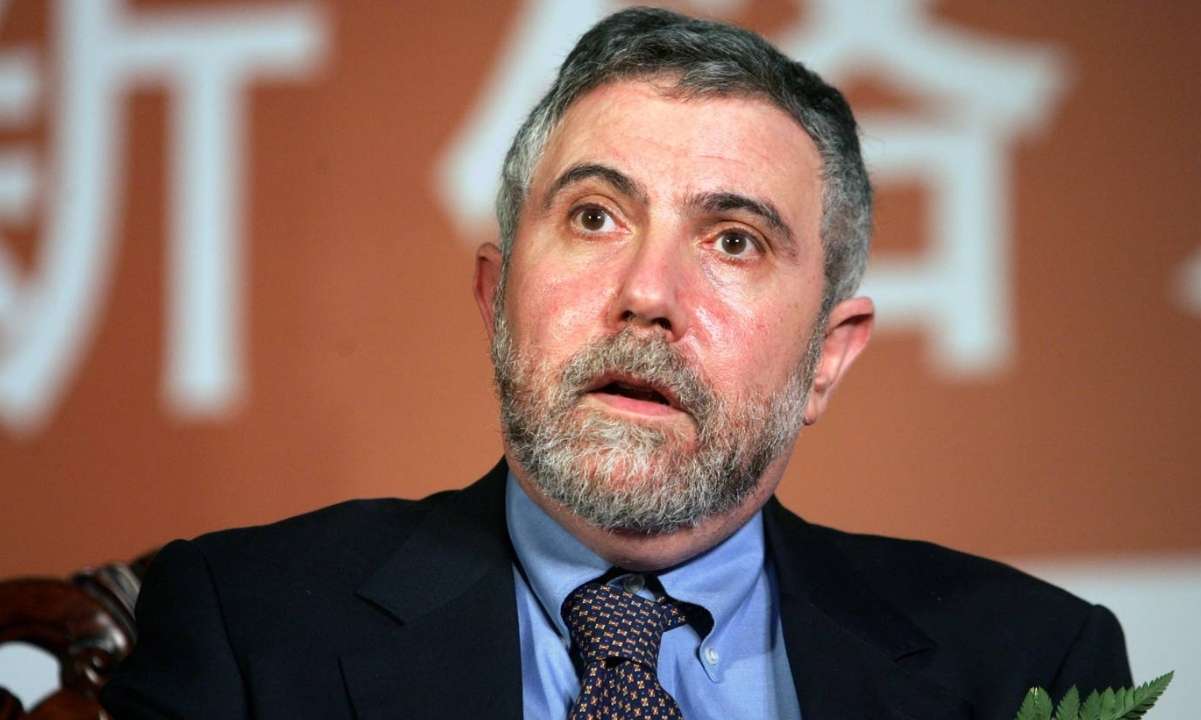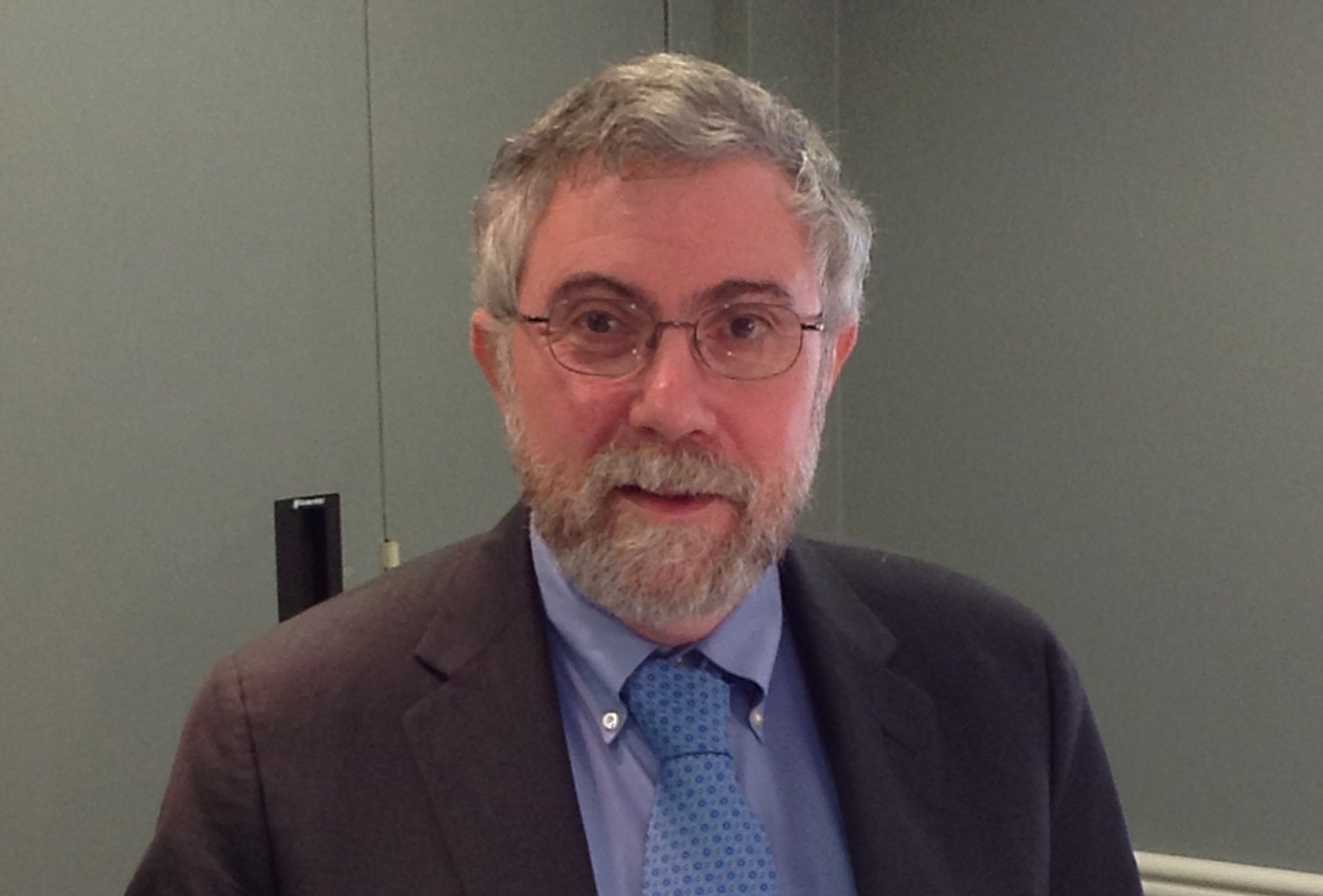Table of Contents
- Krugman: Income Inequality Pricks 'Conscience' : NPR
- Crypto is a Long-Running Ponzi Scheme, Says Nobel Prize Winner Paul Krugman
- Paul Krugman: Nobel Prize or Academy Award? - Evonomics
- Dec 08, 2008 - Stockholm, Sweden - PAUL KRUGMAN, 2008 winner of the ...
- EconomicPolicyJournal.com: 22 Days in Paul Krugman's Masterclass (Day 3 ...
- Nobel Laureate Paul Krugman Says Argentina, Brazil’s Joint Currency Is ...
- Nobel prize-winning economist Paul Krugman on inflation, Modern ...
- EUA, onde o capital é rei | Por Paul Krugman - Jornal Grande Bahia (JGB)
- Nobel Prize-winning Economist Paul Krugman on Tax Reform, Trump, and ...
- Nobel Laureate Economist Paul Krugman | Chicago News | WTTW
:quality(70)/cloudfront-us-east-1.images.arcpublishing.com/bloomberglinea/EYQKR5LOQJGLRCFGLHLXKA3NCE.jpg)
Paul Krugman is a name synonymous with economics, and his contributions to the field have been recognized globally. As a renowned economist, columnist, and author, Krugman has made significant impacts on our understanding of international trade, economic policy, and the global economy. In this article, we will delve into the biography of Paul Krugman, his Nobel Prize win, and some interesting facts about his life and work.


Early Life and Education

Paul Krugman was born on February 28, 1953, in Albany, New York. He developed an interest in economics at a young age and pursued his undergraduate degree in economics from Yale University. Krugman then went on to earn his Ph.D. in economics from the Massachusetts Institute of Technology (MIT). His academic background and research focus on international trade and economic geography laid the foundation for his future work.


Career and Contributions

Krugman's career spans over four decades, during which he has held various positions in academia, government, and journalism. He has taught at several prestigious institutions, including Princeton University, MIT, and Stanford University. Krugman's research has focused on international trade, economic policy, and the global economy. He has written extensively on these topics and has published numerous books, including "The Self-Organizing Economy" and "Peddling Prosperity".

Nobel Prize and Awards
In 2008, Paul Krugman was awarded the Nobel Prize in Economics, along with Leonid Hurwicz and Eric Maskin, for his work on international trade patterns and economic geography. Krugman's Nobel Prize win recognized his contributions to our understanding of how countries trade with each other and how economic activity is distributed across the globe. This prestigious award is a testament to Krugman's groundbreaking research and its impact on the field of economics.

Columnist and Author
In addition to his academic work, Krugman is a prolific columnist and author. He writes a regular column for The New York Times, where he offers insightful commentary on economic policy, politics, and social issues. Krugman's writing is known for its accessibility, making complex economic concepts understandable to a broad audience. He has also written several bestselling books, including "The Conscience of a Liberal" and "End This Depression Now!"

Interesting Facts
Here are some interesting facts about Paul Krugman:
- Krugman is a self-proclaimed "liberal" and has been an outspoken critic of conservative economic policies.
- He has been a vocal advocate for progressive policies, including increased government spending and taxation.
- Krugman has written science fiction novels, including "The Accidental Theorist" and "The Self-Organizing Economy".
- He has been named one of the most influential people in the world by Time magazine.
In conclusion, Paul Krugman is a highly respected economist, columnist, and author who has made significant contributions to our understanding of international trade, economic policy, and the global economy. His Nobel Prize win, bestselling books, and regular column in The New York Times have cemented his position as a leading voice in the field of economics. As we continue to navigate the complexities of the global economy, Krugman's work remains essential reading for anyone interested in economics, politics, and social issues.
Source: Britannica